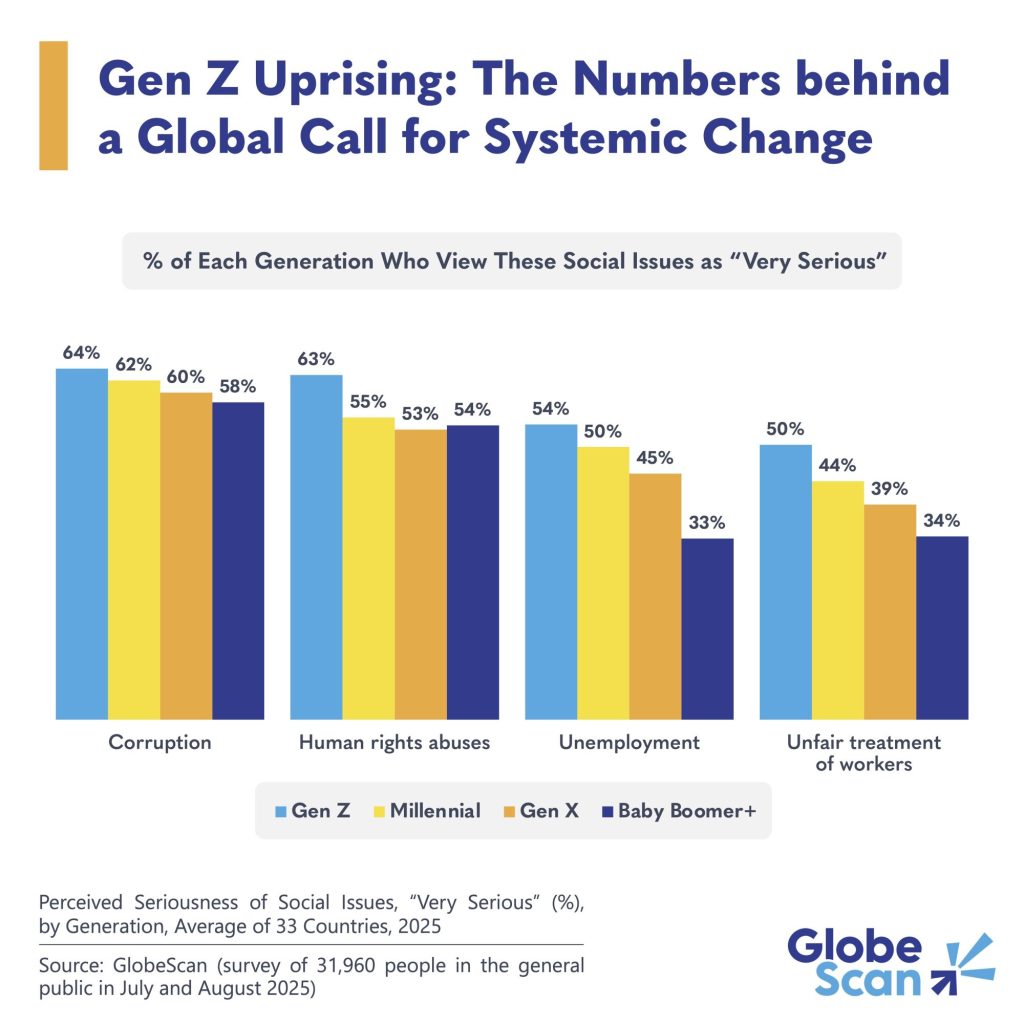Gen Z calls for systemic change
A global survey shows the younger generation is concerned about corruption, economic insecurity and governance failures. Read More

- Youth-led protests across borders show global concerns about corruption, economic insecurity and governance failures.
- Gen Z consistently rates systemic issues as more serious than older generations.
- Protests and dissatisfaction reflect a broader generational call for systemic reform.
From Nepal to Morocco to Peru, Gen Z is making its voice heard. This year, youth-led protests erupted across continents, driven by a strikingly consistent set of grievances: entrenched corruption, political elites seen as abusive or unresponsive, rising economic insecurity and youth unemployment, and deteriorating public services. These protests aren’t isolated; they reflect a broader generational sentiment backed by global data.
Recent research from GlobeScan reveals concerns voiced by young people in recent protests reflect a broader global trend. Around the world, Gen Z (those born between 1996 and 2010) consistently shows higher levels of concern than older generations about systemic social issues. Nearly two-thirds of Gen Z consider corruption to be a “very serious” problem, compared to only 58 percent of Baby Boomers. This generational gap is even more pronounced on issues such as human rights abuses, unemployment and unfair treatment of workers. Together, these findings highlight a shared sense of urgency among younger generations worldwide.

What this means
Gen Z is navigating a world that feels stuck, where broken systems persist and promises of reform often fall short. Their protests aren’t just expressions of frustration; they’re calls for systemic change. This is a warning signal for governments, employers and institutions everywhere. Ignoring these concerns risks deepening discontent and eroding trust.
Brands and institutions that want to connect with young people must speak to these concerns directly and credibly, and their messaging must match the urgency felt by the younger generation. Listening, co-creating and visibly responding to youth concerns are essential for sustaining trust and relevance, whether you’re a government, brand or other organization.















